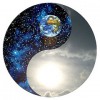Three of the biggest long-term challenges facing our world today are wars/ terrorism, poverty, and climate change. Although at varying levels, and in some ways interrelated, each of these has already disrupted our lives and holds substantial potential to escalate and truly threaten the survival of the human race. In light of the recent events in Mumbai, here is an article I had written for the Sunday Times of India, focusing on one of the fundamental aspects related to creating long-term world peace.
Wars and violence have been an integral part of our civilizations. However, in recent times, spurred by terrorism, world peace is threatened at an unprecedented scale. A quick search shows over 10,000 people died or got injured from terrorist attacks during 2008 itself. Similarly, the number of casualties from Iraq war alone is estimated to have topped a million. As one wonders about the root cause of this extraordinary violence, some of the obvious reasons that come to mind include – religious differences, socio-economic inequality, technology and ease of communication, and globalization of arms trade and people mobility. However, underlying all these seems to be a more fundamental and longer-term issue – and that’s the deeper emotional issue of anger and hatred. It originates at an individual level and as it spreads and gains acceptance among a wider group, it has the potential to get substantially amplified. It doesn’t matter where the violence is directed, anger and hatred remain at the very core of it.
Anger is a strong feeling of annoyance, displeasure, or hostility. It is an emotional state that may range from minor irritation to intense rage. It can be caused by any number of triggers – someone cutting our lane on the freeway, someone saying hurtful things to us, someone doing things that appear unjust and so forth. Often, the underlying factor bringing up anger is a sense of lack of control – a perceived threat to getting what we want. This desire for control maybe inborn or may grow through our childhood and other experiences. In situations of acute perceived threat, uncontrolled anger can turn into hatred. Such hatred often comes from the belief that the real source of our unhappiness or provocation is entirely external to us and is hence targeted at an external object, person or group. As Matthieu Ricard highlights in his book “Happiness”, “Hate exaggerates the faults of its target and ignores its good qualities.” Simultaneously, there is a belief that all these negative aspects are completely intrinsic and beyond any hope of change. Possessed by these thoughts, the person then starts to construct a repulsive image of the target, resulting in feeling justified in taking strong action towards elimination of the threat in some way and form, without any care for others’ welfare. Now, amplify these emotions at a group level and we can begin to see how a person or a group can build on any hateful ideology and act towards fixing the perceived ills of a society. Such actions then generate fresh hatred among the impacted people and through that the cycle of resentment, hostility and suffering lives on unabated.
How can we break this vicious cycle? As Mahatma Gandhi said, “We must be the change we wish to see in the world.” The effort towards seeing a world with less anger, hatred and hostility, has to begin with each of us individually. This can be one of our greatest contributions towards a better society. As this effort gains critical mass, it can surely become a meaningful force for broader social change to occur. When we look around, we find umpteen examples of small irritation to rage-like situations in our own lives – from people losing temper at work, or adults getting angry at home, or protestors going out of control and rioting. What we see played out through terrorists is a reflection of the collective anger and hatred in this world. Every time we get angry, the collective anger grows; every time we notice it and learn to put it aside, the collective anger decreases. Working with ourselves- even though that’s one individual at a time and can appear to be a slow process- is the real long-term solution towards producing sustainable shift in social behavior. We have to be willing to look inwards, identify our own emotional triggers, reflect on them, and slowly eliminate them from our lives. We have to realize that getting angry does not solve the situation in any way – it only exacerbates it. As The Dalai Lama says, “By giving in to anger, we are not necessarily harming our enemy but are definitely harming ourselves. We lose our sense of inner peace, do everything wrong, and make life impossible for those who live with us.”
Following an alternate path of love, compassion and forgiveness offers the distinct possibility of breaking the cycle of hatred and hostility. Living in this way can also enable us to support the same journey in others. We can learn a great deal in this regard from our bodies as well. Our body works with all its parts so harmoniously that we don’t even notice it; until the time we get hurt or fall sick. Generally, our body has enough intelligence to heal itself without any external assistance. In fact, in many cases, it’s our overworked mind that comes in way of the natural healing process to take over – we become anxious thinking about similar patterns of the past or worrying about an imagined future. The choices we have when a part of our body is hurt is to a) feel awful about it and curse it, or b) ignore it, or c) embrace it and help it slowly heal. As we learn to take the last approach, and accept what is, we accelerate our own healing process – both physically and emotionally. We become more tolerant, more peaceful and confident, and eventually see better results. We can apply the same approach to every one who’s hurt or angry as well – work with them to slowly heal them of their suffering. When one of our arms is hurt, it’s not that the other arm refuses to cooperate; it continues to compensate the best it can. In the same way, once we realize how we are all interconnected parts of the same whole; diverse manifestations of the same universal energy; micro replicas of the same God, we can begin relating to all others as different parts of our bodies and start treating them with greater acceptance, affection and kindness.
Our actions will thus automatically dictate a preference for larger social good over our normal obsession with self-interest and control. As Leo Tolstoy said, “Everyone thinks of changing the world, but no one thinks of changing himself.” Slowly but surely, our individual efforts at eliminating anger and hatred from our lives can build momentum for broader social change. As we learn to work wisely with others to allow their inner goodness to appear, we can contribute towards creating happier families, peaceful neighborhoods and more harmonious communities. Loving parents would facilitate growth of loving children; compassionate business leaders would inspire deeper understanding among co-workers. With this approach, we can even reach out to working with reforming challenging groups. There are enough examples of criminals getting effectively reformed and rehabilitated through counseling and meditation. As this virtuous circle of understanding and compassion grows, world peace can eventually become a possibility – however, it all has to begin with our individual commitment to self-awareness and self-responsibility towards personal change. Let me end with the serenity prayer –
“God, grant me the serenity
To accept the things I cannot change
Courage to change the things I can
And wisdom to know the difference”
Related Search Terms:
how to get inner peace and harmony /how to get mind peace











 Personal Mastery and Communities
Personal Mastery and Communities Pain Is Inevitable, Suffering Need Not Be
Pain Is Inevitable, Suffering Need Not Be Demystifying Death
Demystifying Death Join, Lead, Start or Build Such Organisations
Join, Lead, Start or Build Such Organisations So, what are you addicted to?
So, what are you addicted to?
Hi Rajiv,
Another Nice article. I like the word “Collective anger”.
As JK (J.Krishnamurthy) said, even though outwardly by technology we have made progress but psychologically, inwardly we have not made little progress.
Rajiv, soon expect a nice article about recession and how to handle it.
Thanks
Prkash
Thanks for that Prakash.
I did write a piece recently on “Reinventing ourselves in times of trouble” – kindly scroll down the blog to the piece dated Oct 25, 2008. Hope you enjoy!
Rajiv
Hi Rajiv,
Nice one again. I really liked the piece and I also do believe in the same, what Gandhi said, “We must be the change we wish to see in the world.”
The explaination of anger also is very enlightning.
Thanks
Deep